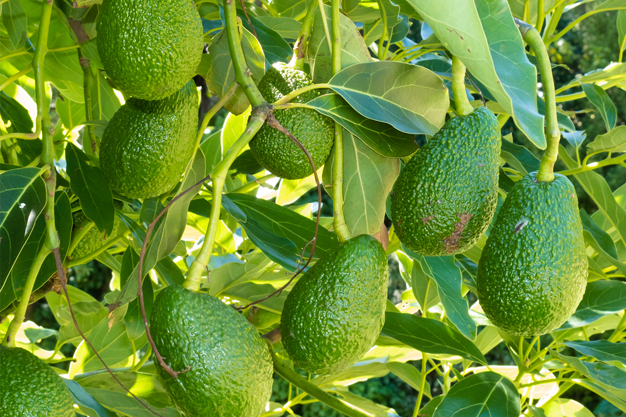 South African avocados arrived last week on a European market that had been unusually devoid of avocados.
South African avocados arrived last week on a European market that had been unusually devoid of avocados.
Due to an expectation of fewer Mexican avocados available to supply the United States, Peru will naturally prefer to fill the gap in North America rather than having to navigate the Panama Canal to get to Europe.
"Given these realities, it is our expectation that there will be less pressure from Peru on the European avocado market, and they'll be a presence from a later period than usual," says Edrean Ernst, chairperson of the South African Avocado Growers' Association. "Peru has also had their climatic challenges which impacted their crop."
The situation is, however, complicated by the ongoing effect of the Russian war on the pocket books of the average European consumer, affecting their spending patterns and disposable capital.
The South African crop is in the upward cycle of the alternate bearing pattern this year, with an export estimate of between 20 million and 25 million 4kg equivalent cartons (80,000 to 100,000 tonnes) for this season. Exports during 2023 amounted to 18 million cartons.
Little impetus to China when the pull from Europe's so strong
Russia, an important market for South African greenskins, will probably remain stable while Ernst, who is a director at Tzaneen-based Allesbeste Boerdery, doesn't expect that the industry as a whole will earmark large volumes for China, which allowed South African avocados in last year.
"China is not currently a very large market, although there's no question that the demand is there to be developed. It's also a fairly risky proposition sending to China. The industry still has to find its footing given the requirements and shipping protocols when going to China."
He remarks that there is not a lot of impetus to send avocados to China this season when the opportunities in Europe are looking so favourable.
The other piece of good news is the opening of Japan.
"There is planning within the industry to undertake a test shipment for Japan around about the month of June. The challenge there is to implement cold sterilisation without hurting the fruit."
And then the work starts to develop the potential for avocados in Japan. Ernst remarks that, contrary to what Westerners might expect, avocados are not commonly used in Japan in the preparation of traditional sushi.
"However, the Japanese are supremely inventive in their approach to food and we're keen to partner with them to see where our avocados could fit into their cuisine."

Global disparities in avo consumption
He makes the observation that avocado demand from a country like the United States could absorb South Africa's total annual crop in only a few weeks, while even larger populations like those of China and India (where South Africa doesn't yet have market access) have a level of avocado consumption that is, he says, "shockingly low".
The development of East African avocado industries has been attracting much attention. The importation of avocados from Tanzania, Kenya and Mozambique by South African retailers before the local season gets going, is in his view an opportunity to grow local consumption.
"The amount of avocados imported from these countries is relatively low at the moment and I don't think South African avocado producers really feel an impact, also because there's relatively little overlap with our own season."
Shipping starts without hiccups
Exporting avocados means getting up close to the complexities of South Africa's ports, and in particular Cape Town's.
"Although there is a lot of positive movement, nothing major has been effected to bring improvement to the shipping situation. We haven't experienced any problems for the moment, but I have little doubt that as soon as citrus volumes pick up the same challenges will re-appear unless operational changes are put in place in time."
Ernst adds that, despite capacity constraints within the state-owned ports authority Transnet, the avocado industry is heartened by the cooperation from a number of Transnet employees with the Fresh Produce Exporters' Forum, FruitSA and the Agbiz Fruit Desk to clear the path on their behalf.
As for when the industry's volumes could reach a plateau, he answers: "We don't know where the ceiling is for our industry but we do know it's not near."
 For more information:
For more information:
Edrean Ernst
South African Avocado Growers' Association
Tel: +27 15 307 3676/7
Email: info@subtrop.co.za
https://avocado.co.za/
